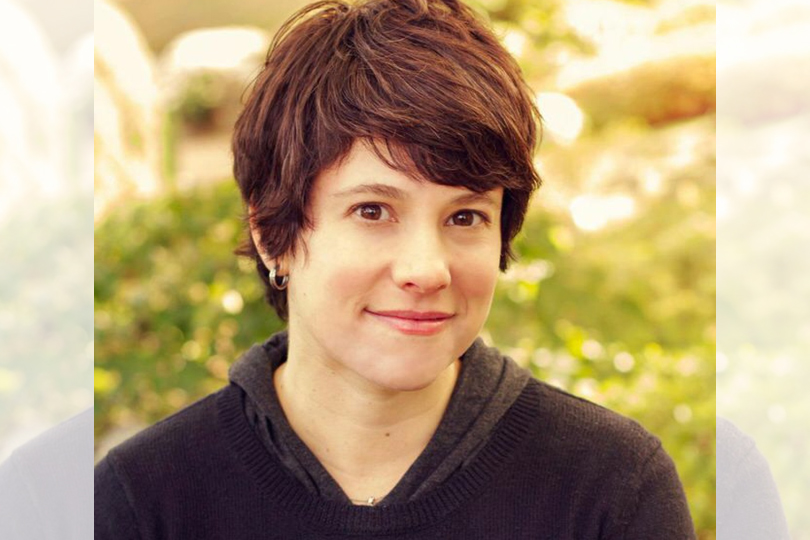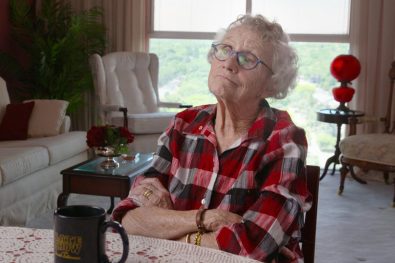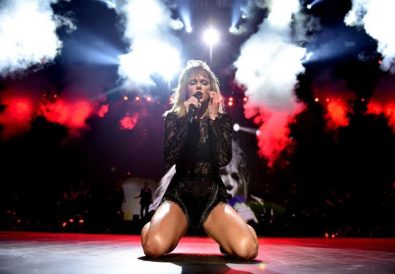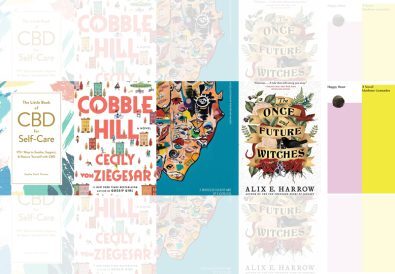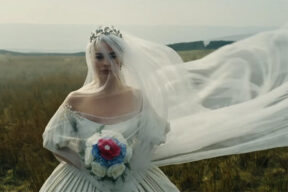If you’ve ever met me, you likely know that I am obsessed with fairy tales. As a child, I checked out my local library’s copy of Hans Christian Anderson’s The Little Mermaid so many times that I doubt anyone else in my neighborhood had the chance to read it. And I sobbed and begged my mother for an explanation on why I had legs and not a mermaid tail (something I was able to rectify with Halloween costumes). When I entered university, and other students were enrolling in the fairy tales and fantasy literature course for an easy A, I enrolled in it because I actually wanted to devour the reading list. And nowadays, I cannot get enough of new literary retellings and film renditions that revive these timeless tales.
That’s why I was so excited to talk to Christina Henry, a Chicago-based author who has delved into the folklore canon with several bestselling novels. Her Lost Boy imagines the backstory of Captain Hook, Alice tells of a Victorian woman locked away in a hospital because nobody believes her story, and The Mermaid is a “what if” tale, in which the mermaid in P. T. Barnum’s famous Fiji mermaid hoax is actually real. And this June, she released The Girl in Red, a powerfully reimagined Little Red Riding Hood.
Christina spoke to me from her home in Chicago while taking a breather between her hectic book launch schedule. So, read on as we chat about Little Red Riding Hood, why classic fairy tales resonate with readers through the generations, and how retellings can give a voice to traditionally passive female characters.
Congratulations on the new book! Could you start by telling us a little bit about it and what the plotline is all about?
The short answer is it’s a post-apocalyptic Red Riding Hood story. It’s a story in which there’s been a disease that’s devastated the country, and nobody really knows what’s happening. The main character Red and her family live in a fairly isolated area, so they’re kind of watching from a distance as all of chaos is happening, and then the chaos starts to approach closer and closer to where they are. So, they decide the best solution is for the whole family to leave and go to Red’s paternal grandmother’s house, which is even more isolated, in the middle of the woods. So, once that decision is made, that’s kind of the impetus for the whole story. It’s kind of a journeying, questing kind of story with a lot of peril.
Did you come to the novel wanting to tell a post-apocalyptic story, and then used the Little Red Riding Hood tale as your vehicle into it, or was it the other way around, where you wanted to retell Little Red Riding Hood and then you decided to push it to the future into a post-apocalyptic setting?
Yeah, I don’t know that I necessarily wanted to retell Little Red Riding Hood per se. I just saw in my head a girl wearing a red hood holding an axe. I saw Red. I just wanted to know who she was and why she was there and why she had a bloody axe. So, I wrote the story so I could find out. A lot of my stories start this way, where it’s just an image or a question and I write the story so I can find out. My process is more like that of a reader. I want to discover the story as I go—that’s why I don’t outline, because if I outlined, than I would know the end, and then the story is not interesting to me anymore.
How would you describe your heroine, Red?
She’s prickly. She is difficult. She is paranoid. She is super smart, but maybe not as smart as she thinks she is. She’s always convinced that she’s right. She’s brave but not foolhardy. That’s something that always frustrates me with heroic characters, is that they make really dumb decisions just because it’s heroic, and she’s like no… that doesn’t seem to be smart. I think that she has a hard shell, so I think that she can be difficult to love, but then when you see her soft underbelly, you realize that she’s a very vulnerable person underneath.
How do you think that your character Red compare or differ to other versions of Little Red Riding Hood?
Off the top of my head you know there is Angela Carter’s The Company of Wolves, which is a great story but it’s a lot more about awakening into adulthood. The other retelling I can think of off the top of my head is Freeway, which is a film starring Reese Witherspoon as a troubled teenager with a bad home situation and she hitches a ride with a guy that she sort of knows to take her to her grandma’s house. She’s street-smart and headstrong. But I think that the Red in the original folklore story is really a cautionary tale against going off the path and talking to strangers. And ultimately, Little Red Riding Hood herself is a very passive character. She doesn’t have a lot of agency. She’s told to stay on the path and not talk to anybody. She doesn’t do that; she talks to the wolf because the wolf is like “Hey, little girl.” And then she gets to grandma’s house, he’s already eaten her grandma, and then she’s magically saved by a guy who swoops in at the last second. That’s not my Red at all.
You’ve done other books that are inspired by fairy tales and folklore. Why do you gravitate towards these sorts of characters?
Well, I mean, it wasn’t really on purpose. I’m a very half-assed writer, so a lot of it is accidental and just where my interest is at the time. For Lost Boy, that one came from a question. My son, when he was five years old, was obsessed with Peter Pan. So, I was watching the movie with him for like the hundredth times, and all of a sudden it occurred to me why: why does Captain Hook hate Peter Pan so much? Isn’t he an adult? Why is he hanging around Neverland terrorizing this kid? Doesn’t he have better things to do somewhere else? Isn’t he a pirate? Doesn’t he have pirate things to do? So, I just wanted to know why he was so angry, So I wrote Lost Boy so I could answer that question.
Why do you think fairy tale characters resonate so much with readers?
I think we have this cultural knowledge of certain stories that we share. I mean, all stories come from something else, whether those influences are obvious or not. But every story comes from what’s come before it. I would say we’re playing this huge generations-long game of telephone. People always told stories. We tell stories to each other, and other people hear them, and they retell those stories, and every time they’re re-told, people put their own addition or their own spin. So, we have this collective memory of stories, and things like Alice’s Adventures in Wonderland or Peter Pan or Red Riding Hood — when you use a story like as an obvious influence for your book, what you’re doing is you’re meeting the reader halfway. So, the reader has something that they’re bringing to the story, and you can use those things to help them find their way into your story.
I love what you’re saying about how these folklore stories get transformed over time. In a literature course I took back at university, we looked at how these tales are reinvented for each generation—like the medieval people shared these stories orally about peasant-lord relations, starvation, or survival, and then they sort of got a little tamer with the Victorians and were used to moralize, and then the 20th-century Disney ones are for fun and sanitized for children. What do you think our generation is doing to these tales?
I think there’s a lot more awareness on the sources of the stories, and that the sources of these stories do tend to be darker. I think a lot of storytellers now are just kind of trying to draw those original roots out and play with and make them relevant for now. Obviously, you don’t want to have completely passive female characters in the 21st century, you know? That’s not going to appeal to anybody. So, you can’t write the kinds of characters that just sit around waiting for someone to come and save them.
I’ve noticed that’s a common thread with your books, that you’re giving women a more active voice.
Yeah, for example, when I was thinking about Alice… So, the original structure of Alice’s Adventures in Wonderland is really simple. Alice falls into the rabbit hole because she’s curious, right? And then she basically wanders from place to place meeting weirdos [laughing]. It’s a really basic linear structure that you can hang a retelling on and feel free to re-interpret your own way.
So, in my book Alice is an assault survivor who is not believed—you know, there are elements of her story that are not believed by her family. She was locked up because that’s what you did with women in the Victorian era. So, she’s trying to uncover her memories and uncover her identity. The linear structure works really well in that kind of story, because she can piecemeal put together what happened to her. Ultimately, it’s a personal story about re-assembling your identity after trauma.
I also wanted to ask you about your book The Mermaid, featuring P.T. Barnum, the great Victorian showman and founder of the Barnum & Bailey Circus.
I first thought of this story probably about eight years ago, and all I had at that time was: P. T. Barnum and real-life Fiji mermaid hoax. He sold this monkey skeleton sewed to the tail of a fish to the public as a real mermaid. So, when I first thought of the story, I was like well, what if the Fiji mermaid was a real mermaid? When I came around to finally write the story, it ended up being less about Barnum and more about the mermaid, and about dealing with grief and loss, and feeling alien in human society, and also a little bit about who owns women’s bodies. You know, because Amelia, the mermaid, goes to work for Barnum, and to him, she belongs to him, but Amelia says, no, I belong to me.
So your mermaid story explores the idea of the ownership of the female body, with Alice, you’re exploring the experience of Victorian woman and the asylum and not being believed, and with Red, we’ve got a female character with an axe instead a classic Little Red Riding Hood who is saved by the guy with the axe. So, would you say that your books have a feminist agenda?
I mean I don’t think I have a feminist agenda, per se, but I definitely think I’m a feminist writer. I think that these questions are important to ask. I think that it’s also important to write a range of women in books. There’s this idea that you’ve only written a feminist book if you’ve written a badass woman, right? She can go out and beat everything up with her fist. But that’s not the only kind of women that’s strong, you know?
That’s why writing Alice was important for me, because a lot of people are dealing with trauma—not just sexual assault trauma, but all kinds of trauma. A lot of people have mental health issues, and I think that it’s important to explore those ideas in stories and tell people that it’s okay not always to be strong.
Strength doesn’t always have to manifest itself in what you might think of as a stereotypically masculine way. We tend to think of strong women characters as women who are strong because they do traditionally masculine things. Ultimately, I think it’s important to show that there’s a range of womanhood, and that there’s a range of strengths, and that it’s also okay not to be strong all the time. It’s okay to feel afraid. It’s okay to feel vulnerable.
Did you always want to be an author?
Yeah, I did I mean. I was a big reader as a kid, and I think it’s a really natural extension of being a big reader. If I wasn’t reading a story, I was making one up in my head. So, I probably couldn’t do anything else really.
Would you be able to talk a bit more about your writing process?
I mean I can, but I can’t make it sound interesting [laughing]. I’m on panels at these conventions with these other writers, who are talking about how they write all these drafts and outlines and they have notebooks like worldbuilding things and post-it notes on their wall. And I’m just like yeah… I don’t do any of that. I literally just start writing. Like I said, for me so much of it is about discovery. I want to discover the story as I go.
How do you actually write your stories? Do you just type them out in a Word document?
I actually write by hand. I’m super analog. It was actually a habit that I developed when I started writing my second book, and it was more out of self defense than anything. So, I wrote my first book when my son was two and he still napped in the afternoons. By the time I got around to writing the book, he did not nap in the afternoon. I had to figure out a way to write with an insane toddler who had so much energy.
So, I used to take him to the park, and he loved the sandbox. So, I brought a notebook with me and just started writing while he was playing, and I thought I could get several pages done. And then, you know, at some point, like 30 or 40 pages in, I would drop it all into a Word document. I found I would edit it as I go. It’s very satisfying to suddenly drop so many pages into your document. I think that when you write by hand it’s much more deliberate, because your hand gets tired, right? So, you kind of have these pause points and you give yourself a little breathing room and then you can go forward. The bad part of this is if you lose the notebook…
Which authors have inspired you?
I mean, definitely Tolkien, because I read the Lord of the Rings when I was 12 and that’s the first time that I said: “I want to be a writer.”
Robin McKinley was a huge influence on me, especially when I was young. I remember reading The Hero and the Crown when I was maybe 13 or 14 years old. It’s about a princess who is also a dragon-slayer. Like the hero in the book is the princess. It ended up winning the Newbery award, so it’s widely recognized as a great book, but she has such a powerful way of storytelling. It’s really spare. There are no unnecessary flourishes, but at the same time you feel like her world is very fully realized. That’s the kind of book that I aspire to write.
And definitely Stephen King. I’ve read almost every one of his books. Over the years I’ve read probably 95 of them. I would say he’s influenced a whole generation of horror writers because he’s the big horror writer of the last 40 years, but also, he has a very conversational way of telling a story that I also like. Also, I read a ton of mysteries when I was younger. I still read a lot of mysteries. I don’t know how they’ve influenced me, per se, but I’ve always liked to read them because I like to solve the puzzle. I don’t know how many puzzle elements actually end up in my books…
I feel like with your writing process you’re kind of solving a mystery, because you said you start out with the question or an idea of the starting point, and then you want to write to figure out what happens in the end.
That’s awesome that you just put that together for me.
You’re welcome!
You just solved the puzzle for me of why I write in this weird way.
What advice do you have for aspiring authors?
Oh, I don’t know. It’s funny, because I’ve written 14 books and I still feel very unqualified to give writing advice. I think it’s because the process of writing is so personal. Ultimately writing a book is really about figuring out for yourself what works for you. I know that’s so unhelpful. Stephen King said—I’m paraphrasing, but roughly—read a lot and write a lot. That’s how you get to be better at what you do. Read widely. Don’t just read in your favorite genre or in the genre you plan on writing in. Read lots of things and see how writers tell stories. Then just keep keep picking around until you find a process that works for you.
A lot of writers say to write so many words a day. And I do think it’s understandable advice, and it is valuable to a certain extent to say you should write 1000 words a day, because it helps you develop the habit of writing and more than anything, new writers need to develop the habit. If you want to write a whole novel, you know, you have to stick with it. You can’t put it down and pick it up and put it down and pick it up. But at the same time, it can be very intimidating to hear that you have to write every day, because if you work a full-time job and you come home, and you’re supposed to write every day to make sure that you know you stay on track and you don’t, you can get caught in the cycle of “I didn’t do it, so I’m not a real writer.” I think it’s important to find the balance that works for you. Maybe you do write every day, but you only write a paragraph, you know? Whatever works for you.

